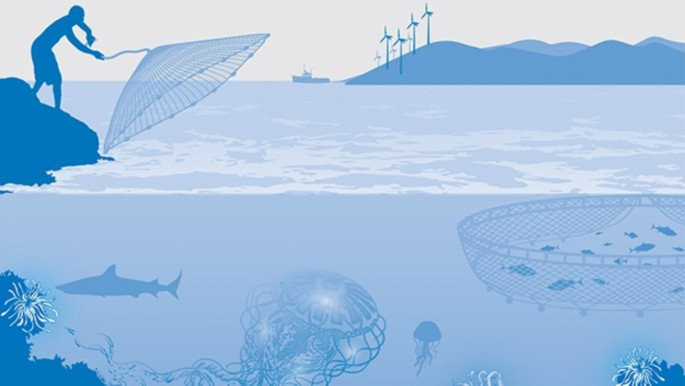Blue economy tourism potentials still untapped
There should be adequate amusement facilities for foreign tourists in beach towns so that the tourism sector can make a significant contribution to the blue economy, said experts and stakeholders at an event on Sunday.
“Why would tourist-packed cruise ships anchor in the coastal belt or on the beaches? What will they do then? Are there any recreational arrangements we have for them,” Rear Admiral (Retd) Khurshed Alam, secretary at the Maritime Affairs Unit of the Ministry of Foreign Affairs, raised the questions while building on his arguments for the amusement facilities.
“We have 75 islands, but we could not utilize those yet in a planned way to attract the foreign tourists,” he told the event titled “Role of Tourism Sector in Blue Economy of Bangladesh”.
He urged the authorities to facilitate private entrepreneurs so that they come forward with cruise vessels that will bring in foreign travellers.
Discussants told the programme that Bangladesh is yet to utilise the full potentials of a blue economy, especially from tourism aspects, despite being awarded an additional 19,467 square kilometres of maritime area in 2014.
“Many tourists want to see fishing in the sea, which is very common in the Maldives. If we can introduce such arrangements here in the Bay of Bengal, foreigners will also come to Bangladesh,” said Prof Nurul Islam Nazem, deputy team leader of a tourism masterplan by the government.
He mentioned they are focusing on beach tourism and cruise ship tourism.
As the chief guest, State Minister for Tourism Mahbub Ali said they will take initiatives so that private investors can operate cruise ships without facing any bureaucratic tangle.
There are different development projects, including three special tourism parks in Cox’s Bazar, being implemented to improve the country’s tourism sector, according to the tourism ministry.
Work is underway to set up Naf Tourism Park, Sabrang Tourism Park and Sonadia Eco Tourism Park in Cox’s Bazar that are expected to create employment for 2 lakh people and economic activities worth $2.0 billion per year, the state minister said.
In 2014, the International Tribunal for the Law of the Seas gave a verdict in favour of Bangladesh, awarding the country 118,813 sq km territorial sea, 200 nautical miles of exclusive economic zone and all kinds of marine species and non-marine resources under the continental shelf.
With the additional maritime area, Bangladesh found a maximum depth of 2,200 metres at the edge of its maritime boundary.
—Collected




